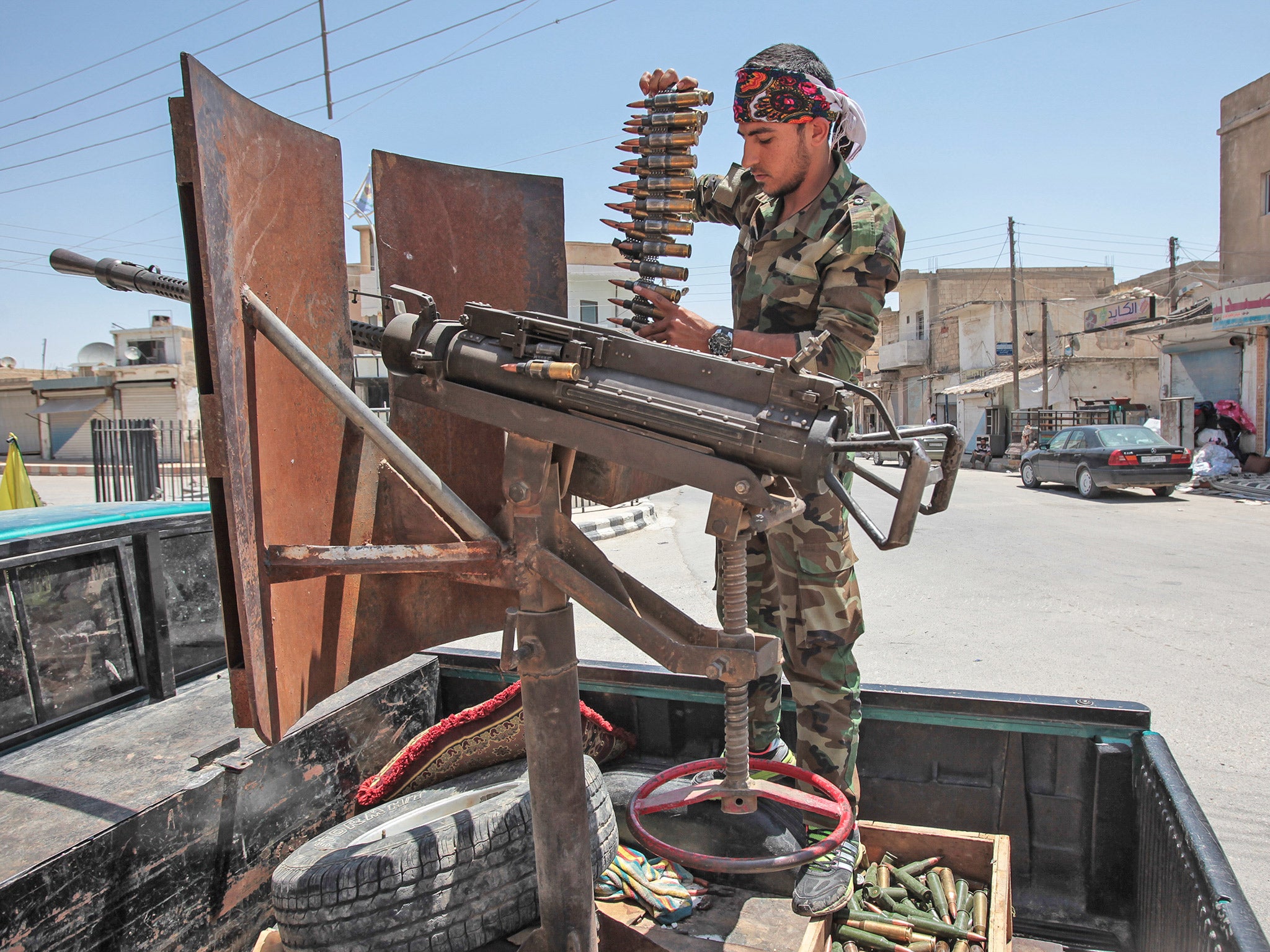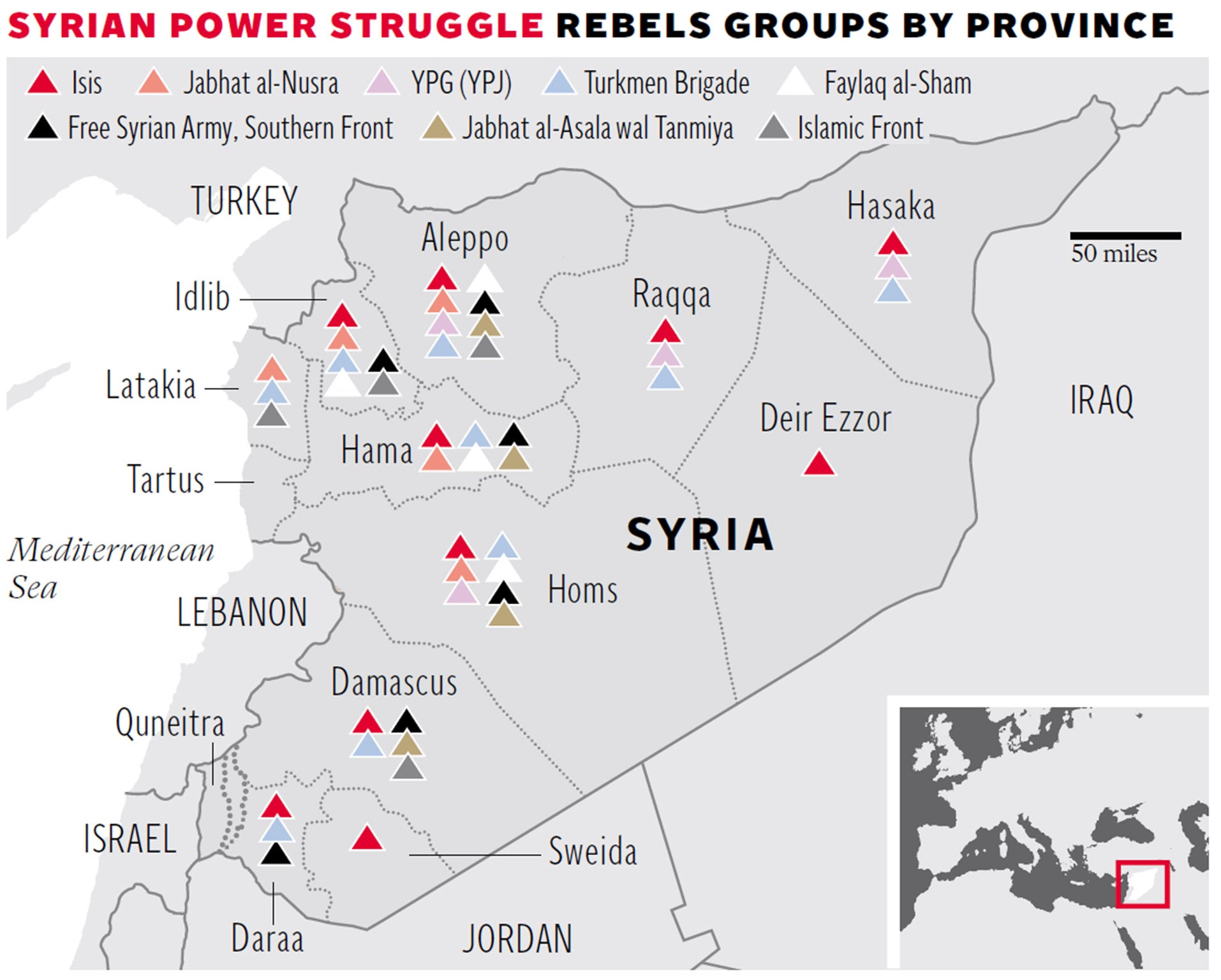David Cameron's '70,000 moderate rebels' are in Syria, the allies just need to direct them to take on Isis
It is now up to the West and its allies to turn this into an effective force


In the debate about Britain joining in air strikes against Isis in Syria, David Cameron’s assertion that there are 70,000 “moderate” fighters on the ground has come under severe criticism. It does not bear scrutiny, say the opponents of military action. Such a force, in such numbers, simply does not exist.
Downing Street cannot give a breakdown of the figures and, for many, this may seem like a depressing reminder of “facts” manufactured to justify Tony Blair joining George W Bush’s invasion of Iraq. I spent a lot of time in Iraq in the run-up to that war and used to be amazed on visits back to Britain to hear officials simply inventing numbers – a mythical underground resistance ready to spring up against Saddam Hussein, or how we were only 45 minutes from destruction by WMDs.

There are reasons to question just how much difference British air strikes will make and on the broader strategy in Syria. But, on this occasion, the Prime Minister’s numbers do add up when it comes to the possibility of forming an anti-Isis force. There are, indeed, 70,000 rebels in Syria who do not belong to Isis and who have been backed, in the course of the civil war, by the West and its Arab allies. Many of them already have a track record of fighting Isis.
I am not including in that figure Jabhat al-Nusra, the al-Qaeda affiliate, which has, in the past, received substantial funding from sources in Qatar and Saudi Arabia, although it too has also fought against Isis. I am also excluding Jaysh al-Muhajirin al-Ansar, a Caucasian group whose threat of bringing back jihad to Russia was one of the reasons given by Vladimir Putin to justify military action in Syria, because of their closeness to Isis.

The remaining groups have the current backing of Saudi Arabia, Turkey and Qatar. Some have been vetted, trained and armed by the Americans, some have been supplied with “non-lethal” aid such as body armour, SUVs and communications equipment by Britain and France. Just how moderate are they? Those of us who have spent some time with the rebels in Syria have seen how the definition of moderation has changed over the blood-soaked years. In the summer of 2012, during fighting in Aleppo, there were indeed large numbers of moderate Muslim opposition fighters. Isis did not exist at the time, al-Nusra was a small and nasty band which fled when regime tanks made a foray into the front line at Salaheddine.
Western help would have buttressed the moderates and may even have allowed them to seize Syria’s largest city. But that did not come. Al-Nusra grew, Isis was born. Among the rebel militias fighting Isis now, the Kurds are getting the most publicity, but there are also highly effective Arab groups. Some of them, such as Ahrar al-Sham and Jaish al-Islam, are conservative Islamists, although moderate in comparison with Isis. Saudi Arabia intends to invite them to a conference on Syria next month.

The only way to limit the influence of the Islamist groups in a future Syria is to do what the Russians are doing, hitting them as well as attacking Isis, on behalf of their ally, Bashar al-Assad, a course much criticised by the West and Arab Sunni states. The Americans, however, bombed Khorasan, an ally of al-Nusra, on the first days of their anti-Isis air campaign last year.
The Russians are also bombing more moderate groups like the Turkmen on behalf of Assad. Their warplane shot down by the Turks was in the process of such an operation. The Turks sponsor the Turkmen. The Turkmen have clashed with YPG, the Syrian-Kurdish militia, which had been attacked by Turkey because it fears Kurdish autonomy. The Americans, however, consider the YPG their most combative and valuable ally against Isis.
The largest of the anti-Isis forces on the ground is the YPG and its all-female arm, the YPJ, with around 50,000 fighters. The Free Syrian Army, a rebel umbrella group, has around 25,000; Southern Front, around 25,000; Jabhat al-Asala wal Tanmiya, around 5,000; Faylaq al-Sham, around 4,000; Islamic Front (Ahrar al-Sham, Jaish al-Islam and al-Tawhid Brigade) around 30,000.
It should be possible, with vetting, training and arming to form a force to fight Isis. The Kurds will have to play a part, although the extent of their reach will be limited for political reasons. There is no question of having a joint command and control system between them and the Arabs.
The outside powers supporting the armed groups need to work together. Otherwise both diplomatic and military efforts will fail. A previous American effort to form a Syrian opposition force was a costly failure, so a new approach is being taken. But the numbers to take on Isis are there on the ground. It is now up to the West and its allies to turn this into an effective force.
Join our commenting forum
Join thought-provoking conversations, follow other Independent readers and see their replies
Comments
Bookmark popover
Removed from bookmarks